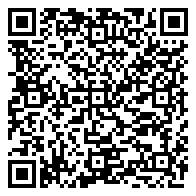Introduction
In today’s dynamic business landscape, organizations face constant change and conflict. While these challenges are often seen as disruptive, when addressed with the right change management strategies and conflict resolution techniques, they can drive innovation, collaboration, and sustainable growth.
This course equips participants with practical tools to plan and lead organizational change while addressing resistance to change and managing conflicts constructively. Through interactive discussions, hands-on exercises, and case studies, participants will strengthen their leadership, communication, and problem-solving skills, enabling them to guide their teams through transitions with confidence, trust, and adaptability.
Course Objectives
By the end of this course, participants will be able to:
- Understand core change management principles and models such as Kotter’s 8 Steps, ADKAR, and Lewin’s Model.
- Recognize and address resistance to change effectively.
- Apply strategies for planning and communicating change.
- Use structured conflict resolution techniques to resolve disputes constructively.
- Enhance leadership, communication, and problem-solving abilities.
- Build resilience and adaptability within themselves and their organizations.
Course Outlines
Day 1: Foundations of Change and Conflict
- Understanding organizational change in context.
- Drivers and barriers of change.
- Personal perspectives on conflict and conflict resolution.
- Role of emotions in conflict.
- Key change management models: Kotter’s 8 Steps, ADKAR, Lewin’s Model.
Day 2: Planning and Implementing Change
- Assessing organizational readiness for change.
- Developing a clear vision and strategy.
- Stakeholder mapping and engagement.
- Effective communication strategies to support change.
- Activity: “The Ball” – exploring change dynamics.
Day 3: Overcoming Resistance & Communication in Conflict
- Common causes of resistance to change.
- Building trust and transparency in transitions.
- Miscommunication as a trigger for conflict.
- Applying the Thomas-Kilmann (TKI) conflict management model.
- Role-play exercises to practice conflict responses.
Day 4: Practical Conflict Resolution Skills
- Understanding types of workplace conflict.
- Conflict-solving approaches and when to apply them.
- Mediation and structured resolution techniques.
- Case discussion: difficult personality types in conflict.
- The four possible outcomes of communication.
Day 5: Integrating Change Management and Conflict Resolution
- Linking conflict resolution with effective change management.
- Managing real-life scenarios of conflict during change initiatives.
- Building a culture of resilience, adaptability, and collaboration.
- Action planning: applying strategies in the workplace.
Why Attend this Course: Wins & Losses!
- Gain a combined mastery of change management and conflict resolution.
- Reduce resistance to change and improve employee engagement.
- Apply proven tools like Kotter’s 8 Steps, ADKAR, Lewin’s Model, and TKI.
- Enhance leadership, communication, and negotiation capabilities.
- Resolve workplace conflicts constructively to maintain harmony and productivity.
- Build stronger, more adaptable teams during organizational transitions.
- Develop personal resilience and help foster organizational adaptability.
- Leave with a tailored action plan ready to implement in your workplace.
Conclusion
The Change Management and Conflict Resolution course provides a comprehensive framework for professionals navigating organizational transformation. By integrating structured change management models and proven conflict resolution techniques, participants will be empowered to lead change, reduce resistance, and resolve disputes constructively.
This program builds essential leadership, communication, and adaptability skills, ensuring participants can foster collaboration, maintain productivity, and create resilient organizations capable of thriving in times of transition.


